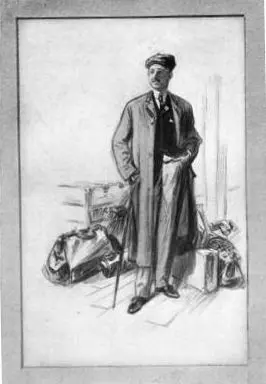William White - In Our Town
Здесь есть возможность читать онлайн «William White - In Our Town» — ознакомительный отрывок электронной книги совершенно бесплатно, а после прочтения отрывка купить полную версию. В некоторых случаях можно слушать аудио, скачать через торрент в формате fb2 и присутствует краткое содержание. Жанр: foreign_prose, foreign_antique, на английском языке. Описание произведения, (предисловие) а так же отзывы посетителей доступны на портале библиотеки ЛибКат.
- Название:In Our Town
- Автор:
- Жанр:
- Год:неизвестен
- ISBN:нет данных
- Рейтинг книги:5 / 5. Голосов: 1
-
Избранное:Добавить в избранное
- Отзывы:
-
Ваша оценка:
- 100
- 1
- 2
- 3
- 4
- 5
In Our Town: краткое содержание, описание и аннотация
Предлагаем к чтению аннотацию, описание, краткое содержание или предисловие (зависит от того, что написал сам автор книги «In Our Town»). Если вы не нашли необходимую информацию о книге — напишите в комментариях, мы постараемся отыскать её.
In Our Town — читать онлайн ознакомительный отрывок
Ниже представлен текст книги, разбитый по страницам. Система сохранения места последней прочитанной страницы, позволяет с удобством читать онлайн бесплатно книгу «In Our Town», без необходимости каждый раз заново искать на чём Вы остановились. Поставьте закладку, и сможете в любой момент перейти на страницу, на которой закончили чтение.
Интервал:
Закладка:
That night, as it was at the end of a holiday, the Republican Committee had assigned to our town, for the benefit of the men in the shops, one of the picture-shows that Mark Hanna, like a heathen in his blindness, had sent to Kansas, thinking our State, after the war, needed a spur to its patriotism in the election. The crowd in front of the post-office was a hundred feet wide and two hundred feet long, looking at the pictures from the kinetoscope—pictures of men going to work in mills and factories; pictures of the troops unloading on the coast of Cuba; pictures of the big warships sailing by; pictures of Dewey's flagship coming up the Hudson to its glory; pictures of the Spanish ships lying crushed in Manila harbour.
Larmy and the reporter were sitting kicking their heels on the stone steps of the post-office opposite the screen on which the pictures were flickering. Some they saw and others they did not notice, for their talk was of David and of the strange things he had shown to them.
"How did you ever fix it up in your mind?" asked Larmy.
"I didn't fix it up. He was too many for me," was the reporter's answer.
"The little rooster couldn't have faked it up?" questioned Larmy.
"No—but he might have hypnotised us—or something."
"Yes—but still, he might have been hypnotised by something himself," suggested Larmy, and then added: "That thing he did with the linotype—say, wasn't that about the limit? And yet nothing has come of that prophecy. That's the trouble. I've seen dozens of those things, and they always just come up to the edge of proving themselves, but always jump back. There is always–"
"My God, Larmy, look—look!" cried the reporter.
And the two men looked at the screen before them, just as the backward sway of the crowd had ceased and horror was finding a gasping voice upon the lips of the women; for there, walking as naturally as life, out of the background of the picture, came David Lewis with his dark sleeves rolled up, his peaked army hat on the back of his head, a bucket in his hand, and as he stopped and grinned at the crowd—between the lightning-flashes of the kinetoscope—they could see him wave his free hand. He stood there while a laugh covered his features, and he put his hand in his pocket and drew out a key-ring, which he waved, holding it by some long, stemlike instrument. Then he snapped back into nothing.
And the operator of the machine, being in a hurry to catch the ten-thirty train, went on with his picture-show and gave us President McKinley and Mark Hanna sitting on the front steps of the home in Canton, then followed the photograph of the party around the big table signing the treaty of peace. As the crowd loosened and dissolved, Larmy and the reporter stood silently waiting. Then, when they could get away together, the reporter said:
"Come, let's go over to the shop and think about this thing."
When they opened the office door, the rank odour of the machinery came to them with sickening force. They left the front door open and raised the windows. The reporter began using a chisel on the top of a little box with a Government frank on it, that had been placed upon the music-box in the corner.
"We may as well see what David sent home," he grunted, as he jerked at the stubborn nails, "anyway, I've got a theory."
Larmy was smoking hard. "Yes," he replied after a time; "we might as well open it now as any time. The letter said all his things would be found there. I guess he didn't have a great deal. Poor little devil, there was no one much to get things for but you fellows and maybe me, if he thought of us."
By this time the box was opened, and the reporter was scooping things out upon the floor. There was an army uniform, that had something clinky in the pockets, and wrapped in a magenta silk handkerchief was a carved piece of ivory. In a camera plate-box was a rose, faded and crumbly, a chip-diamond ring, a bangle bracelet, a woman's glove and a photograph. These Larmy looked at as he smoked. They meant nothing to him, but the reporter dived into the clothes for the clinky things. He came up with a bunch of keys, and on it was the long brass lever which unlocked the music in the box.
"Here," he said as he jingled the keys, "is the last link in our chain." And he rose and went over to the box, uncovered it, and jabbed in the lever with a nervous hand. There was a rolling and clinking inside. Then, slowly, a harmony rose, and the tinkling that came from the box resolved itself into a melody that filled the room. It was strong and clear and powerful, and seemed to have a certain passion in it that may have been struck like flint fire from the time and the place and the spirit of the occasion. The two men stared dumbly as they listened. The sound rose stronger and stronger; over and over again the song repeated itself; then very gently its strength began to fail; and finally it sank into a ghostly tinkle that still carried the melody till it faded into silence.
"That," said the reporter, "is the song that was in his heart—'Love's Golden Dream.' I'm satisfied."
"The last link," shuddered Larmy. "That which seemed corporeal has melted 'as a breath into the wind.'"
The reporter shovelled the debris into the box, pushed it under a desk, and the two men hurried to close the office. As they stood on the threshold a moment, while the reporter clicked the key in the lock, a paper rustled and they heard a mouse scamper across the floor inside the empty room.
"Let's go home," shivered Larmy. They started north, which was the short way home, but Larmy took hold of his companion's arm and said: "No, let's go this way: there's an electric light here on the corner, and it's dark down there."
And so they turned into the white, sputtering glare and walked on without words.
V
The Coming of the Leisure Class
We all are workers in our town, as people are in every small town. It is always proper to ask what a man does for a living with us, for none of us has money enough to live without work, and until the advent of Beverly Amidon, our leisure class consisted of Red Martin, the gambler, the only man in town with nothing to do in the middle of the day; and the black boys who loafed on the south side of the bank building through the long afternoons until it was time to deliver the clothes which their wives and mothers had washed. Everyone else in town works, and, excepting an occasional picnic, there is no social activity among the men until after sundown. But five years ago Beverly Amidon came to town, and brought with him a large leisure and a taste for society which made him easily the "glass of fashion and the mould of form" not only in our little community, but all over this part of the State. Beverly and his mother, who had come to make their home with her sister, in one of the big houses on the hill, had money. How much, we had no idea. In a small town when one has "money" no one knows just how much or how little, but it must be over fifteen thousand dollars, otherwise one is merely "well fixed."

And brought with him a large leisure and a taste for society
But Beverly was a blessing to our office. We never could have filled the society column Saturday without him, for he was a continuous social performance. He was the first man in town who dared to wear a flannel tennis suit on the streets, and he was a whole year ahead of the other boys with his Panama hat. It was one of those broad-brimmed Panamas, full of heart-interest, that made him look like a romantic barytone, and when under that gala façade he came tripping into the office in his white duck clothes, with a wide Windsor tie, Miss Larrabee, the society editor, who was the only one of us with whom he ever had any business, would pull the string that unhooked the latch of the gate to her section of the room and say, without looking up: "Come into the garden, Maud." To which he made invariable reply: "Oh, Miss Larrabee, don't be so sarcastic! I have a little item for you."
Читать дальшеИнтервал:
Закладка:
Похожие книги на «In Our Town»
Представляем Вашему вниманию похожие книги на «In Our Town» списком для выбора. Мы отобрали схожую по названию и смыслу литературу в надежде предоставить читателям больше вариантов отыскать новые, интересные, ещё непрочитанные произведения.
Обсуждение, отзывы о книге «In Our Town» и просто собственные мнения читателей. Оставьте ваши комментарии, напишите, что Вы думаете о произведении, его смысле или главных героях. Укажите что конкретно понравилось, а что нет, и почему Вы так считаете.












